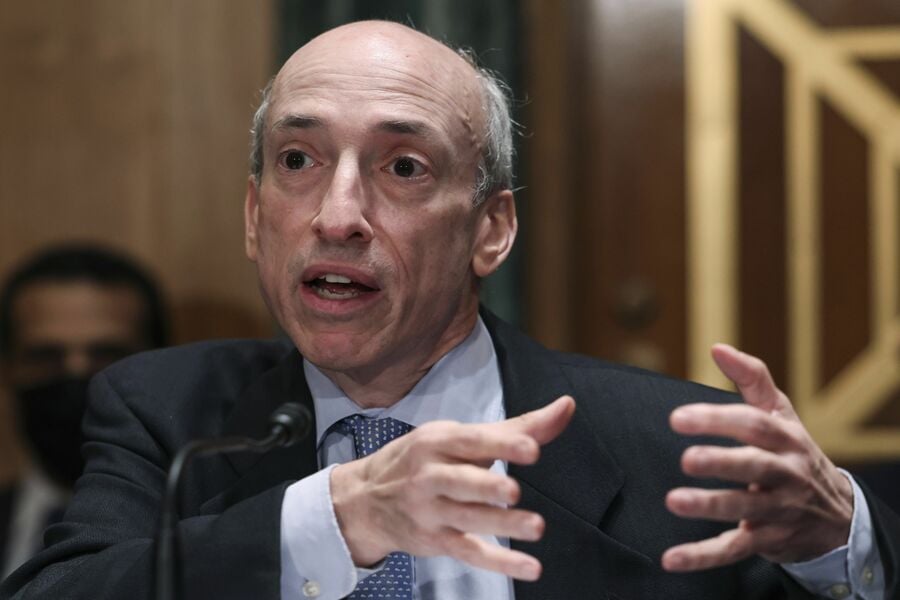

The Securities and Exchange Commission is adding 20 more officials to a team dedicated to policing crypto markets, the latest move by Wall Street’s main regulator to crack down on digital tokens that may run afoul of its rules.
The additions will bring the SEC’s Crypto Assets and Cyber Unit to 50 people, the agency said Tuesday in a statement. The focus of the expanded enforcement group will include virtual-currency offerings, decentralized finance and trading platforms, as well as stablecoins, according to the regulator.
Over the past year, the SEC has moved aggressively to expand oversight of digital-assets with Chair Gary Gensler frequently saying he considers many of them to be securities and subject to his agency’s rules. The regulator has launched probes into marketplaces offering certain types of nonfungible tokens, or NFTs, and companies behind crypto-lending products.
“By nearly doubling the size of this key unit, the SEC will be better equipped to police wrongdoing in the crypto markets while continuing to identify disclosure and controls issues with respect to cybersecurity,” Gensler said in the statement.
The SEC team, which was previously known as the Cyber Unit, has brought more than 80 enforcement actions since its inception in 2017, the agency said.

Looking to refine your strategy for investing in stocks in the US market? Discover expert insights, key trends, and risk management techniques to maximize your returns

The RIA led by Merrill Lynch veteran John Thiel is helping its advisors take part in the growing trend toward fee-based annuities.

Driven by robust transaction activity amid market turbulence and increased focus on billion-dollar plus targets, Echelon Partners expects another all-time high in 2025.

The looming threat of federal funding cuts to state and local governments has lawmakers weighing a levy that was phased out in 1981.

The fintech firms' new tools and integrations address pain points in overseeing investment lineups, account monitoring, and more.
RIAs face rising regulatory pressure in 2025. Forward-looking firms are responding with embedded technology, not more paperwork.
As inheritances are set to reshape client portfolios and next-gen heirs demand digital-first experiences, firms are retooling their wealth tech stacks and succession models in real time.
